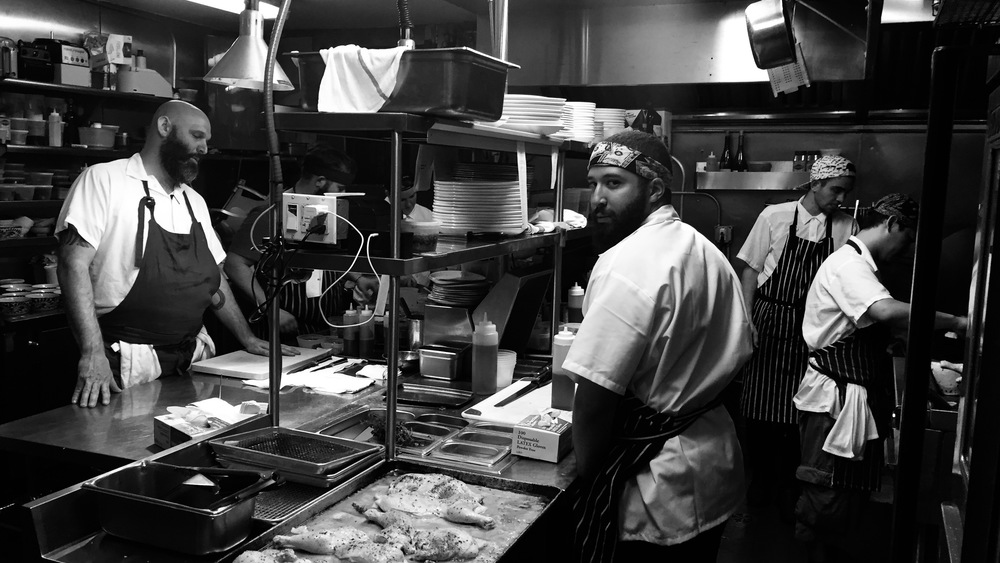- October 29, 2025
New Report Showing How Trump’s Deportation Policies Are Gutting America’s Restaurant Industry

On National Immigrants Day, UC Berkeley’s Food Labor Research Center and One Fair Wage Release New Report Showing How Trump’s Deportation Policies Are Gutting America’s Restaurant Industry
Immigrants make up more than one-fifth of all restaurant workers nationwide — and their mass deportation is driving labor shortages, raising prices, and shrinking the economy.
Download the report, here
New York, NY — On National Immigrants Day, the Food Labor Research Center at the University of California, Berkeley, and One Fair Wage (OFW), the national campaign to ensure all service workers earn a full and fair minimum wage with tips on top, released a new report: “An Industry of Immigrants: Restaurant Industry Impacts of Mass Deportation.”
The report details the severe economic and human consequences of Trump’s ongoing deportation campaign, which is forcing hundreds of thousands of foreign-born residents to flee the country. Immigrants are essential to the U.S. economy, particularly the restaurant sector, where 22 percent of all workers are foreign-born, including 46 percent of chefs and 18 percent of waitstaff. Yet, in the months following Trump’s return to office, the U.S. workforce has contracted by 800,000, driven by the loss of 1.7 million foreign-born workers between March and July 2025 — the first major labor force decline in years.
Applied to the restaurant industry, that workforce exodus translates into a loss of approximately 137,000 immigrant restaurant workers in just four months, projected to reach 310,000 by the end of the year.
City-level impacts include:
-
New York City: 4,800 foreign-born restaurant workers have fled the country. One in five NYC restaurant workers are undocumented and at risk of deportation.
-
Chicago: Nearly 2,300 foreign-born restaurant workers have been lost between March and July.
-
Washington, D.C.: 800 foreign-born restaurant workers have fled — enough to account for the city’s total restaurant workforce decline during the same period.
The data illustrate how these policies are not only morally indefensible but also economically self-defeating. According to a 2024 SSRN literature review, mass deportations shrink the U.S. economy, cause job losses for citizens, reduce wages for American workers, and worsen public finances.
“Mass deportations are a form of economic sabotage,” said Saru Jayaraman, President of One Fair Wage and Director of the UC Berkeley Food Labor Research Center. “Every deportation is a pink slip for an American restaurant. The industry depends on immigrants — from dishwashers to chefs to owners — and without them, it collapses.”
The report also highlights that more than one-third of all restaurant owners are foreign-born, nearly double the national rate for other industries (36% vs. 19%). For decades, immigrants have been the backbone of America’s food economy — opening restaurants, sustaining local small businesses, and introducing new cuisines and cultural experiences that enrich communities.
Jayaraman continued, “The restaurant industry is the Ellis Island of the modern economy — and it’s under siege. Trump’s policies are creating fear, instability, and chaos for millions of families and the businesses that employ them. We should be raising wages and protecting immigrant workers, not driving them out.”
The report concludes that instead of doubling down on fear and deportation, the federal government and restaurant industry leaders must act together to raise wages, stabilize the workforce, and defend immigrant rights to prevent long-term damage to one of America’s most vital industries.
The full report, “An Industry of Immigrants: Restaurant Industry Impacts of Mass Deportation,” is available at www.onefairwage.org/reports. Representatives from One Fair Wage and the UC Berkeley Food Labor Research Center are available for interviews.
Representatives from One Fair Wage are available to discuss the report. To schedule an interview, please reach out to: press@onefairwage.org.

